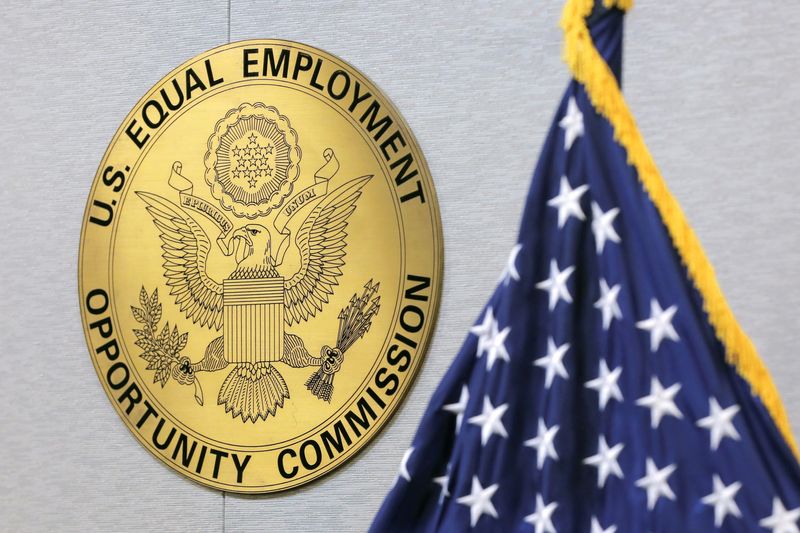By Brendan Pierson
(Reuters) -A U.S. judge has blocked a federal agency from enforcing a rule crafted by President Joe Biden's administration requiring employers to accommodate employees who have abortions or undergo certain fertility treatments against members of a nationwide Catholic employers' association.
North Dakota-based U.S. District Judge Daniel Traynor late on Monday issued a preliminary injunction sought by the Colorado-based Catholic Benefits Association and the Catholic Diocese of Bismarck, North Dakota, which sued the U.S. Equal Employment Opportunity Commission to challenge the regulation announced in April.
The rule was drafted to implement the Pregnant Workers Fairness Act, a 2022 federal law that Congress passed with bipartisan support and the backing of major business groups. The law requires employers to alter job duties or give time off to workers with "limitations related to ... pregnancy, childbirth or related medical conditions."
The plaintiffs argued that the rule violated protections for religious freedom under the U.S. Constitution's First Amendment and a federal law called the Religious Freedom Restoration Act. The judge issued the order after deciding the plaintiffs were likely to prevail because the new requirements "force individuals to violate sincerely held religious beliefs."
Traynor also ruled that the EEOC cannot take action against the association's members for refusing to use pronouns or allow bathroom use consistent with the gender identity of transgender employees. The agency said in guidance that such actions could be sex discrimination.
"Given the profound moral issues the EEOC has created by its mandates, the members of the Catholic Benefits Association are grateful to have their religious rights vindicated by this order," said Martin Nussbaum, a lawyer for the plaintiffs. The U.S. Justice Department, representing the EEOC, did not immediately respond to a request for comment.
The association said its members include 1,380 Catholic employers and 7,100 Catholic parishes. Most of the employers are Catholic organizations like schools or charities, but some are Catholic-owned businesses.
Traynor's order is due to remain in effect while the judge continues to consider the case.
The EEOC rule includes an exemption for religious employers such as churches or charities. Traynor, however, found that the exemption was insufficient because it was not clear in which instances it would apply and because it did not apply to Catholic employers running ordinary for-profit businesses.
The judge said that such employers were entitled to religious conscience protections. Traynor wrote that because Catholic Benefits Association members were "committed to providing no benefits or services inconsistent with Catholic values," none of them was "wholly secular."
Traynor, an appointee of Republican former president and current presidential candidate Donald Trump, began his opinion by saying it was a "precarious time for people of religious faith in America." The judge castigated Biden's administration for "repeated illegal and unconstitutional administrative actions" that he said restricted freedom of religion.

A federal judge in Louisiana, also a Trump appointee, in June blocked enforcement of the rule against the Republican-led states of Louisiana and Mississippi and against a Catholic bishops' group. Traynor's ruling could have a broader reach because it applies to all members of a nationwide voluntary association.
A separate group of 17 Republican-led states, led by Tennessee, lost a challenge to the rules in June. The St. Louis-based 8th U.S. Circuit Court of Appeals is expected to hear their appeal on Tuesday.